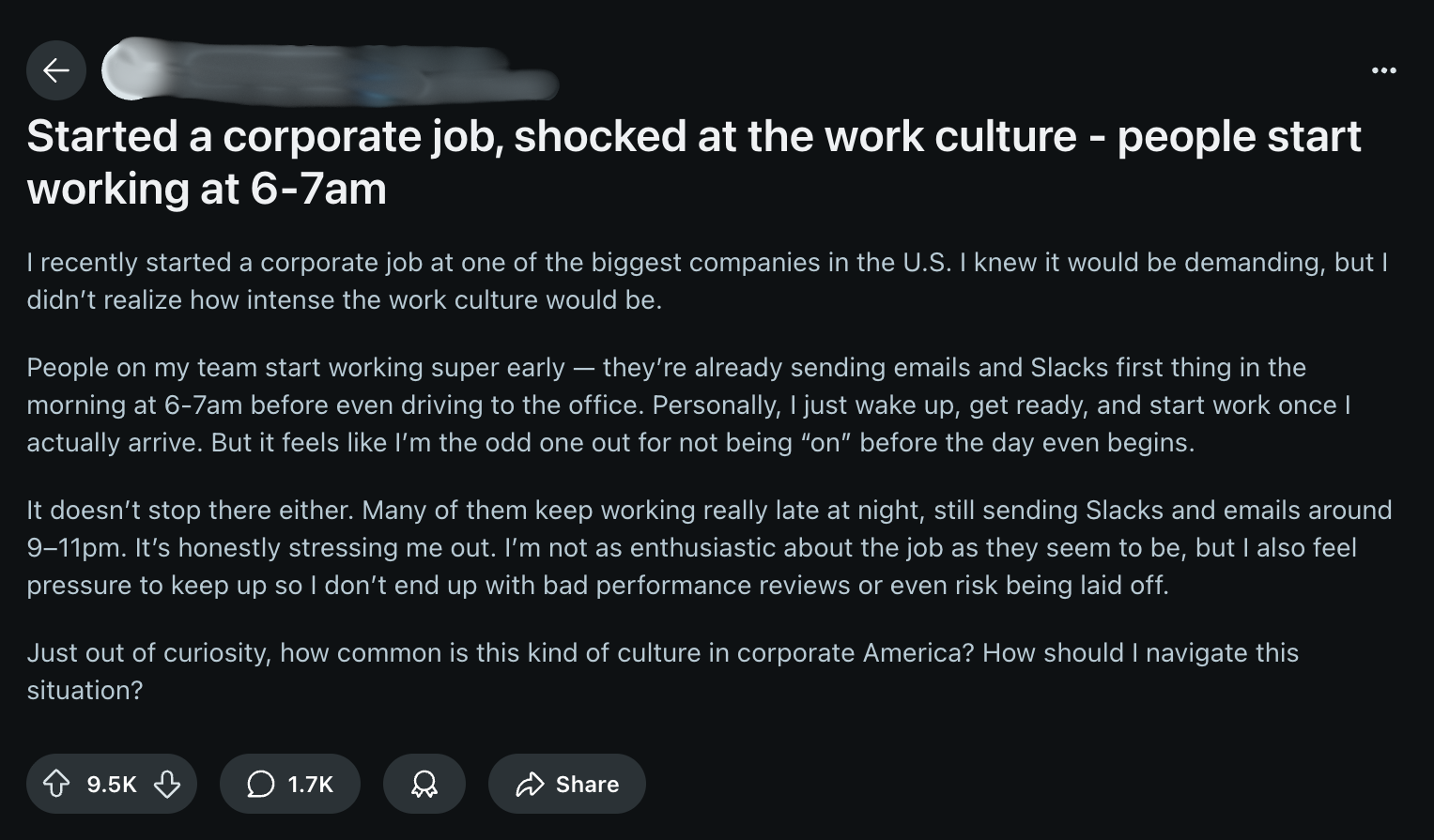
A recent Reddit post has sparked conversations about the intense work culture in some of America’s biggest companies. The poster, a new employee, described colleagues who begin sending emails and Slack messages as early as 6 a.m., long before many have left their homes, and continue working late into the night, sometimes past 11 p.m. While the poster prefers starting work once they arrive at the office, they feel out of step with a team that seems “always on.” The post has resonated with thousands online, highlighting a growing challenge in US workplaces: the expectation that employees be constantly connected, creating stress and anxiety for newcomers.

The early-bird email phenomenon
Across many major companies, especially in tech, finance, and consulting, employees are expected to be available early. Teams often start their days before sunrise, coordinating with colleagues in different time zones or racing to get a head start on tasks. While early mornings can reflect dedication, they can also create an unspoken competition—where waking up before dawn is equated with commitment. For newcomers, this culture can feel alien, creating stress over what counts as “enough” effort.
Late-night messaging: The invisible pressure
The intensity doesn’t stop at sunrise. Slack messages ping late into the evening, emails pile up, and some employees find themselves responding well past traditional working hours. While flexibility is often marketed as a perk, in practice, it can mean that the boundaries between work and personal life vanish. Experts warn that responding to after-hours messages regularly can lead to burnout, anxiety, and diminished productivity over time.
Keeping up without burning out
Surviving this environment requires strategy. Employees, especially young ones, must adapt the following strategies to escape the cycle of burnout:
- Setting clear boundaries: Communicate availability and prioritise focused work blocks.
- Understanding company norms: Observe patterns and determine which communications actually require immediate responses.
- Prioritising mental health: Regular breaks, exercise, and unplugging after work hours are essential.
- Smart time management: Early risers aren’t necessarily more productive; effectiveness matters more than hours logged.
New employees should remember that working around the clock doesn’t guarantee recognition—and can sometimes backfire, impacting performance and well-being.
Is this the new normal?
While not universal, “always-on” culture is common in fast-paced industries in the US. Surveys show a growing number of workers feel pressure to respond outside standard work hours, even in companies that promote work-life balance. However, some companies are actively combatting this trend with “no-email weekends” or policies limiting after-hours messaging, signalling a slow shift toward healthier practices.
The bottom line
The Reddit post is a wake-up call for anyone entering corporate America: dedication is important, but being constantly “on” is not sustainable. New hires must navigate unspoken norms carefully, balancing ambition with personal well-being. In a culture that glorifies early mornings and late nights, the real skill may be learning how to work smart, not just around the clock.







